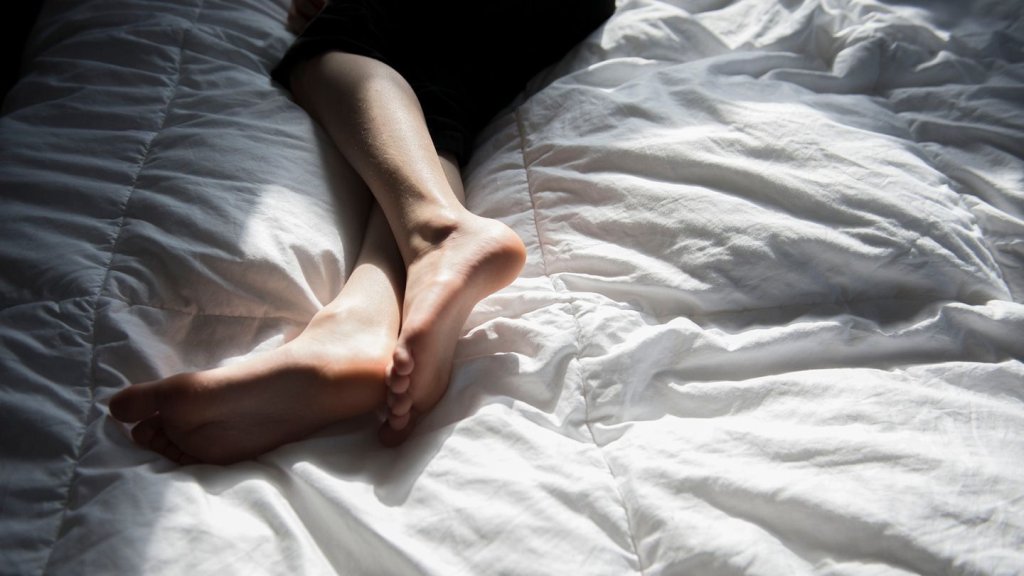You understand the importance of a good night’s sleep only when you wake up tired, sleepy, and grumpy. When you don’t sleep well at night or toss and turn the entire night only to give up on sleep completely. Even sleeping late makes you wake up irritated. Does this sound like you? If it happens once in a while, it is okay. Stress, illnesses, and other factors can make you lose sleep. However, if it happens frequently, you might have insomnia. Insomnia can have many causes, including chronic illness, menopause in women, and more. A doctor can help you diagnose the reason for your sleeping problems and treat them.
Make a few lifestyle changes to see if your sleeping schedule improves. These changes are mentioned below.
Have a sleep schedule.
It is essential to have a sleep schedule. Sleeping and waking up at any time reinforces your body’s sleep-wake cycle. Also, ensure you sleep eight hours every day, not more or less. Some days, when you go to sleep but cannot fall asleep, keep trying for 20 minutes. After that, get up and start doing something relaxing. For example, reading a book, listening to music, walking in the garden, or doing more. Then, make yourself tired and try sleeping again. Don’t start watching Netflix or scrolling through reels.
Increase your exposure to bright light during the day.
Do you know about circadian rhythm? It is the body’s natural time-keeping clock. It impacts the brain, hormones, and body. It tells your body when to go to sleep and helps it stay away. Your circadian rhythm suffers when your body doesn’t get enough light during the day. It leads to poor sleep quality. The circadian rhythm improves if you expose yourself to bright light or sunlight during the day. It enhances daytime energy while working on nighttime sleep’s duration and quality. So expose yourself to sunlight in the morning. Or have a bright light or bulb in your office. It can improve sleep for most insomniacs.
Invest in a great mattress.
Where you sleep also affects your sleep duration and quality. If the mattress you are using isn’t the best, it can lead to tossing and turning. A too-tight or too-soft mattress makes your body hurt. It can make it challenging to fall asleep. Even if you do, you wake up with body aches and pains. Sleeping on a bad mattress is never good, especially with neck and back pain. A memory foam mattress can help with sleep and pain. It uses your body heat to mold itself into the shape of your body. Thus providing comfortable and pain-free sleep.
Be aware of what you drink and eat.
Never go to bed stuffed or even hungry. Both disrupt your sleep. Try to eat a few hours before bedtime and keep dinner light but fulfilling. Overeating or eating a heavy meal means your brain and stomach will focus on digesting it. It can lead to inadequate sleep.
Also, never indulge in nicotine, alcohol, or caffeine before bedtime. Caffeine and nicotine take hours to leave your system, so your last coffee should be well-before 2 p.m. (if you sleep at 10 p.m.). Even alcohol can disturb your sleep; keep the pegs limited.
Reduce daytime or irregular naps.
Do you sleep awfully after a long or irregular nap? Yes, then fix it. When you sleep for more than 30 minutes in a day, your sleep quality suffers. Or if you sleep, say around 6 p.m. Then, a few hours before your bedtime, your nighttime sleep suffers too. Studies even suggest that napping longer in the daytime makes you sleepier during the day. Therefore, nap for 20 minutes or indulge in some cardio or stretching to get rid of daytime lethargy.
Reserve the bed for sleeping.
Don’t eat or work on your bed. It takes away its uniqueness by making us sleep. So instead, reserve it only for sleep and sex.
Sleeping well for eight hours is imperative. When you sleep, your body repairs itself, helping you wake up fresh. Conversely, when you don’t sleep well or at all, it can affect your mental and physical health. So, try these lifestyle changes to see if you sleep better.

